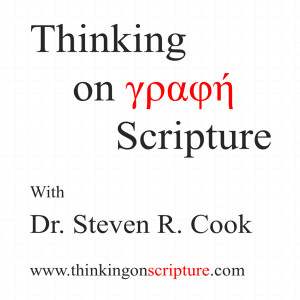
Saturday Jul 13, 2019
Micah 1:1-16
Micah reveals he is a prophet of God from the town of Moresheth, which was about 25 miles southwest of Jerusalem and nearly 20 miles east of the Mediterranean Sea (see map). He prophesied under the reign of Jotham, Ahaz and Hezekiah, and gave prophecies both to Israel and Judah (Mic 1:1). Micah opens his message as though he were in a courtroom calling his fellow Israelites to hear the indictment that is coming against them from the Lord, saying, “Hear, O peoples, all of you; listen, O earth and all it contains, and let the Lord GOD be a witness against you, the Lord from His holy temple” (Mic 1:2; cf. 6:1-2). God is pictured as coming down from His throne in heaven, and He will “tread on the high places of the earth” (Mic 1:3), and the mountains and valleys will quake and melt away at His presence (Mic 1:4). God—Who is too great to be stopped—will intervene and disrupt the activities of His people because of “the rebellion of Jacob and for the sins of the house of Israel” (Mic 1:5a), both in Samaria and Jerusalem (Mic 1:5b). The Lord specifically promises to destroy Samaria, the capital of Israel, because it had become a place of idolatry for His people (Mic 1:6-7). “The Lord’s intervention was due to the Israelites’ sins and rebellion against their sovereign lord. Samaria personified the rebellion of the Israelites, and Jerusalem had become a high place for idolatry rather than for holy worship. These capital cities had become leaders in wickedness rather than in holiness.”[1] Due to Israel’s sin, which was an embarrassment to God’s people, Micah declared, “Because of this I must lament and wail, I must go barefoot and naked” (Mic 1:8a). His contemporary, Isaiah, was called to do the same (Isa 20:1-6). Jackals and ostriches were known for their howling, which Micah replicated as an expression of his grief (Mic 1:8b). Micah is disturbed that Israel’s sin has influenced and corrupted Judah, even the city of Jerusalem, which was to be marked by holiness rather than idolatry (Mic 1:9). Israel’s “wound” lead to her total destruction in 722 B.C., and the spiritual infection brought near destruction to Jerusalem in 701 B.C., as the Assyrian army besieged the capital of Judah and destroyed 46 of its surrounding towns. In verses 10-16, Micah uses words of destruction that are similar in sound to the names of the cities in the region, cities which would be destroyed by the invading Assyrian army. Micah makes a special comment in verse 13 when referring to the town of Lachish, saying, “She was the beginning of sin to the daughter of Zion—because in you were found the rebellious acts of Israel.” The destruction that God was bringing on Judah could be traced back to a particular place in which idolatry was introduced to God’s people. Once the Judahites turned away from God, they no longer felt compelled to worship Him or obey His Word. Without God’s moral absolutes to guide them, they felt free to live as they please, engaging in property theft (Mic 2:1-2), robbery (Mic 2:8), and stealing from widows and children (Mic 2:9). Departure from God and His Word leads to a decline in morals in which people put self-interest above God’s interests, or the interests of others.
[1] Tom Constable, Tom Constable’s Expository Notes on the Bible (Galaxie Software, 2003), Mic 1:5.
No comments yet. Be the first to say something!